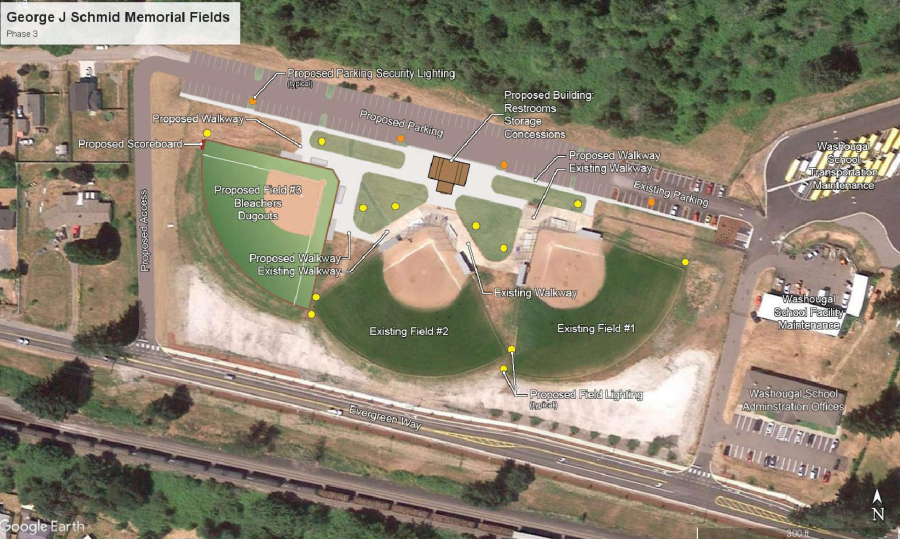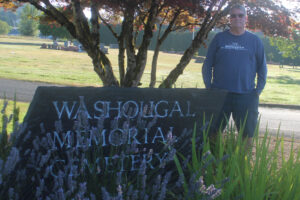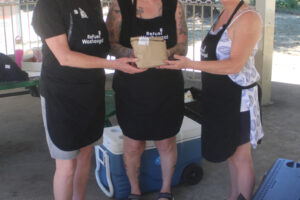When George Schmid Memorial Ballfields in Washougal were constructed, they weren’t completely finished. There were originally supposed to be three baseball/softball fields, but only two were built. There is no concession stand or toilets or lighting or paved driveways.
All of that could be changing soon, as the City of Washougal is working to obtain the money it needs to complete the project.
A revised interlocal agreement with the Washougal School District, which owns the property the fields are on, calls for the construction of a third field in addition to a variety of other improvements. The agreement was approved by the city’s council members at their April 8 meeting.
In addition to building the third field, the city is looking to pave the parking lot, add water, sanitary and electrical services, permanent restroom facilities, lighting, and accessible paths and seating.
Washougal mayor Molly Colston said that construction could begin at some point this year.
“It will be fantastic,” said Mike Plinski, president of East County Little League, the primary user of the fields. “It will help make the venue more attractive to hosting tournaments, which would pull in families from outside the area, who would then support Washougal businesses. A nice sports complex could also be another attraction for families who want to move to the area.”




